- From Faith Current: “The Sacred Ordinary: St. Peter’s Church Hall” - May 1, 2023
- A brief (?) hiatus - April 22, 2023
- Something Happened - March 6, 2023
I’ve mentioned this sublime Beatles parody band many times before on this blog, but if you love the Fabs there’s never a good time not to celebrate the Pre-Fabs: Ron, Dirk, Stig and Barry. This afternoon I quite randomly happened to listen to “Let’s Be Natural” and was struck, for the millionth time, what a wonderful bunch of work this all is.
The Rutles began as a segment on Eric Idle’s post-Python project “Rutland Weekend Television” (which also boasted an appearance by George Harrison). Thanks to the songwriting genius of Neil Innes, and an assist from Lorne Michaels, this bit was expanded into a full-length documentary, All You Need Is Cash. (I think I read that George pulled the shelved The Long and Winding Road film out of the Apple vaults for Idle to screen as he wrote, and it shows.) In addition to being very funny to Beatles fans everywhere, this 1978 film was the fullest collaboration between the two great strands of 1970s Anglophone comedy—Britain’s Pythons and the US’ axis of SNL and The National Lampoon.
That’s something to pause on. In the West, comedy and music had been intertwined since The Beatles landed at Shea and did their version of The Goons for an American audience. But the interchange only really went one way: from the UK to the US. In the early 60s, Beyond the Fringe conquered Broadway, but Lenny Bruce kinda bombed at the Palladium. Even so, after 1964 The Beatles were so loved by American audiences, they had become ours by adoption. When Peter Sellers or Pete and Dud cut a Beatles comedy record with a US audience in mind, was that English or American? Where did the comedy end and the music begin?
Comedy was to the Seventies what rock had been to the Sixties—with one important difference: while in rock there was a lot of interplay between UK and US groups—think The Beatles’ mutual admiration society with Bob Dylan, which culminated in #1 Fanboy George’s playing with him— there really wasn’t much overlap in the comedy world before the late 70s. I forget which National Lampoon editor told me this, but as a lifelong Python-phile I was surprised to hear him say, “In the early 70s, we all dismissed the Pythons. Bunch of guys in dresses with silly voices.”
This is strange until you figure out the key: in music, both the US and UK groups were drawing upon a common (American) form of the blues. But comedy, the US was drawing on a college humor tradition, and the UK was based on music hall and vaudeville. Having started from different places, it required practitioners of genius to meet in the middle; by 1978-79, with The Rutles and SNL, Animal House and Life of Brian, you were approaching a common Anglophone comedy. Suddenly, the English brand didn’t always dissipate into class distinctions and whimsy, and the American brand was no longer afraid to talk about things other than showbiz. It was a good time.
Unfortunately, once those geniuses had moved on, the traditions diverged again—to the detriment of both. It’s a little embarrassing to watch British standup and realize—pace many great talents like Eddie Izzard—that they’re still waiting for Richard Pryor. And on this side of the world, the US is still importing things like The Office or What We Do In the Shadows, all those Ivy League brains strangled by Hollywood’s aiming for a middle-of-a-middle that doesn’t exist.
But I come to praise, not to blame. The Rutles couldn’t bring the two streams together unless it was something much more than mimickry. It had to be about something genuinely loved throughout the West; and it had to be just not parody, but original creative work of the very highest order. Great parody transcends its imitative roots to deliver something artistically worthwhile. And if the topic is sufficiently special, it will deliver a thrill something like the original. It occurs to me that Barry Trotter—my parody of the Harry Potter books released in 2002—worked somewhat like The Rutles did; certainly the fan reaction suggested that there was a knitting together of the US and UK comedic traditions for a moment, before they parted again. That’s not for me to say, but it would be high praise indeed to be mentioned in the same breath as The Rutles.
• • •
By the way, in preparing for this post I happened across this collection of Beatles source material for Rutles’ parody songs, collected by Reddit user IAmTheWalrus1967 for r/beatles. I paste it below:
With A Girl Like You parodies If I Fell
Doubleback Alley parodies Penny Lane
Good Times Roll parodies Lucy In The Sky With Diamonds
Piggy In The Middle parodies I Am The Walrus
Ouch! parodies Help!
Get Up And Go parodies Get Back
Love Life parodies All You Need Is Love
Major Happy’s Up And Coming Once Upon A Good Time Band parodies Sgt. Pepper’s Lonely Hearts Club Band
Hold My Hand parodies I Want To Hold Your Hand and All My Loving
Joe Public parodies Tomorrow Never Knows
Rendezvous parodies With A Little Help From My Friends
Eine Kleine Middle Klasse Musik parodies Come Together
Another Day parodies Martha My Dear
*We’ve Arrived! (And To Prove It We’re Here) parodies Back In The U.S.S.R
Number One parodies Twist and Shout
Cheese and Onions parodies A Day In The Life
Let’s Be Natural parodies Dear Prudence
Questionnaire parodies The Fool On The Hill
Unfinished Words parodies Yesterday
Back In ’64 parodies When I’m 64
Easy Listening parodies Octopus’s Garden
Now She’s Left You parodies I Don’t Want To Spoil The Party
I Love You parodies It’s Only Love
Shangri-La parodies Hey Jude, but has elements of many other songs of that era including A Day In The Life and Being For The Benefit Of Mr. Kite
Don’t Know Why parodies Free As A Bird
Goose Step Mama parodies Some Other Guy
Baby Let Me Be parodies Slow Down
Between Us parodies Baby It’s You
Living In Hope parodies Don’t Pass Me By
It’s Looking Good parodies I’m Down
Nevertheless parodies Love You To
Lonely-Phobia parodies Things We Said Today
Hey Mister! parodies I Me Mine
The Knicker Elastic King parodies Getting Better


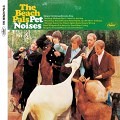
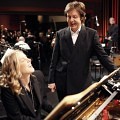


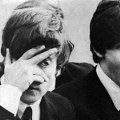


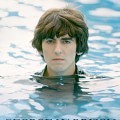

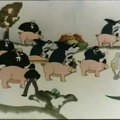

First, “Let’s Be Natural” is one of the best songs John Lennon never wrote. (The other is “There She Goes,” by the Las.)
Second, this is fascinating. I had no idea that UK and US comedy was fragmented for this long. I always assumed that the Pythons had the same effect on US comedy that the Beatles had on US pop, but the explanation makes perfect sense—Python were like the Kinks or pre-Tommy Who, too immersed in their Britishness to be comprehensible to the American mainstream.
Now For Something Completely Different was released in 1972 to American theaters in college towns across the country, and it bombed. Which is interesting, because it’s a collection of sketches that those same (or similar) college kids loved when they were broadcast on PBS three and four years later.
Monty Python and the Holy Grail was the beginning of Pythonmania in the States, and it really only built from there. And it was still strong in the early 80s, when Meaning of Life was released (1983). But even by then the streams had diverged, because the US side had been fully absorbed into Hollywood. And the massive Reagan/Thatcher cultural shift changed the world around them.
Great points about U.S. and U.K. comedy, Michael. I recall back in the 70s seeing “Monty Python’s Flying Circus” in the TV guide, on our local PBS station, and asking to watch it — I must have been seven or eight. My mom told me I was too young and that it was “not a real circus.” As a teenager and young adult, I was watching Monty Python, Saturday Night Live, The Kids In the Hall, and SCTV. It seemed as if there was a real synergy of English, American, and Canadian humor then.
The Rutles are by far the most successful Beatles parody, I think because it is done with so much knowledge and affection. Todd Rundgren’s “Deface The Music” album has always seemed cold in comparison to me: some dead-on musical impersonation, but somehow the spirit seems missing.
Nancy, that was my experience, too! Americans of our generation are generally HUGE Python fans in a way that you can never imagine Americans being huge Goons fans in the 50/60s, or Alexei Sayle/Fry & Laurie/Saunders & French fans in the 90s. There is something about Python that makes it cross over, and I think it’s the same thing that was operating with The Beatles: Python, like The Beatles, is a combination of distinct personalities and equal or near-equal talents. The Goons aren’t like that — it’s Milligan and Sellers, and mostly Milligan, really.
Todd Rundgren likes, maybe even loves, the Beatles, but he’s also got something to prove regarding the Beatles, and to me that comes out in his Beatle-related stuff. Todd Rundgren was a huge star for about a year in 1972-3, and then receded, and I think he naturally has some feelings about that. Whereas I never get any competitive sense from Neil Innes; he’s not saying, “See, this isn’t so hard. I can do this too. If I’d been five years younger, then *I* would’ve done all that.” The Bonzos didn’t think they should’ve been ELO or something; and Innes’ time with the Pythons shows that he’s a true comedic talent. That’s a slightly different flavor than Rundgren, who was, and wanted to be, a rock star.
That’s certainly the sense of Todd I get from his brief war of words with Lennon in ’74 (did anyone EVER beat John in one of those?).
Another great post Mike. I’m delighted this blog is back up and running again, it’s one of the most thought-provoking I’ve come across on any subject.
Thank you, @Justin — four things made it re-emerge:
1) Readers writing to say that they enjoyed it and missed it and wanted it to continue. I’ve pretty much said everything I have to say on this topic, but others haven’t, and if we can keep the comments properly insightful and respectful, I’m happy to have it start up again. Back at the end there I was doing a lot of refereeing between posters and commenters, and I hated every single second.
2) Nancy stepped in and arranged for some really important back-office stuff to get fixed. I’m really grateful to her for that.
3) My health continues to improve, so I can now do Bystander AND post occasionally.
4) Other writers who understand why Dullblog is special are beginning to write. It’s not really a Beatles fan site, nor it is a quasi-academic exercise, both of which already exist in fine forms. At its best, Dullblog seems to specialize in personal writing and also a kind of “New York Review of Books” type overview/discussion which is both learned and accessible. Witty, even.
Because Dullblog began (for me) as a way to keep writing and editing when I was becoming too ill to write and edit at a professional level, I tend to discount/devalue my own work on this site. I love Devin and Nancy’s writing, but I read my own and it simply doesn’t come up to my own standards–I feel the weakness in it. I have many times been tempted to take all my posts down. But others, readers and colleagues I respect (Nancy foremost among them), have assured me that they enjoy my Dullblog writing and think it’s worthy of people’s attention, so I leave it be. Once I hit “publish,” it’s not really about me, anyway.
Dullblog is, I suppose, my attempt to bring a bunch of friends and strangers into the beloved mental space that I occupy when I think about The Beatles. It’s a vast, fascinating place that includes almost everything. It is celebratory and tragic. There is eroticism and innocence, psychedelia and austerity; it is firmly located in a specific time, and also timeless. It has strong emotions in it, but no real rancor. It is, perhaps, where I will go when I die.
But until then, these posts are my best effort at creating that “place,” and for it to work, the reader has to bring his/her imagination and tolerance. When there’s conflict on the site, or when a commenter leaves, never to return, I feel the distance between that “place” and my simulacrum here, and it pains me deeply.
I just want to thank you Michael, for starting this blog up again. I for one, appreciate it, and you.
I found you late, so I was sad when you stopped. I have read through most of the posts here, and the comments. I have enjoyed your writing immensely. You seem to be able to express my feelings about the Beatles so succinctly.
I wish you continued good health, and look forward to more great posts!
Thank you @Tasmin! I am delighted to be able to contribute. And I as just posted, @Nancy’s enthusiasm for the site has been essential to its continuation.
I’m very glad to see this blog enjoying a renaissance, because when I discovered it in 2008 I was so excited to discover some kindred spirits, and in the years since I’ve been grateful to get to know Michael and Devin and to engage in meaningful conversations here.
A space on the internet where people can share their reactions to a common interest in a spirit of camaraderie, good humor, and critical thinking is rare indeed and to be treasured. I’m especially thankful to you, Michael G, for continuing to show up and share your thinking on Beatles-related subjects.
That’s a nice thing to say, @Nancy. This blog would have been taken down if not for your encouragement, interest, and posting. So thank YOU.
That makes sense about Rundgren. Despite the love he clearly has for the Beatles, there’s a kernel of something dark in there when I listen to “Deface The Music.”
And the Pythons were definitely the closest thing to the Beatles, comedically, in their interplay of personalities and their ability to cross cultures and time periods.
After watching “Monty Python” as a preteen I got really excited about British comedy and realized there were more shows on that PBS channel. But I found “Benny Hill” tremendously boring, and the only thing I can remember about “The Fall and Rise of Reginald Perrin” is the intro, in which the main character is walking out of the sea and keeps falling down. I liked “Fawlty Towers” but I don’t think it’s aged quite as well. And I never had much use for “Are You Being Served?” or “Keeping Up Appearances,” although my parents loved both.
I’m with you on those Brit-coms. “Fawlty Towers” is deeply British, full of class neurosis and rage. Cleese and the rest are great performers, but that’s really the only thing that has aged at all. Actually, Ripping Yarns or the Fry & Laurie version of Jeeves and Wooster have aged better because they began as genre exercises and were thus out-of-time from the start.
Python, like Sellers at his best, is British comedy that you don’t have to be an Anglophile to love. All the rest — greats like Peter Cook, Milligan and Wodehouse included — requires knowledge of and sympathy for the UK to really enjoy.
In fact, if you ever set up a Patreon I’d be happy to give a small contribution towards the running costs. Seems only fair.
Regarding comedy crossovers, couldn’t it be argued that in the new millennium there’s been a shared British and American love for “awkward comedy” and single camera realism? Larry David kicks things off with Curb (the pilot was actually done as a mock doc), then The Office conquers the world. America promptly makes its own version. Parks and Recreation. Modern Family. Extras. Peep Show. America’s ongoing love affair with Ricky Gervais.
As a semi-neutral observer, what’s fascinating to me about American “awkward comedy” is I almost never find it awkward. (Neither does David, by the way: he’s said that he never intended Curb to be “cringe humour”. To him it’s basically a series of revenge fantasies.) I think true awkwardness requires certain levels of self-loathing, pessimism, uptightness, rigid social codes etc to work – so naturally the English are better at it than Americans. When Larry makes a scene, he shrugs it off with a ‘Too much?’ and moves on. When Mark Corrigan makes a scene he wants to vanish into the wall and never come out again, and so do you.
I suppose a perfect 2010s transatlantic collaboration would involve a mixture of soul-crushing faux pas and the snappy one-liners the US seems to love as much as ever? Something like the mix of status embarrassment and great dialogue you see in Spinal Tap?
I’ve noticed this, too, and I chalk it up to American society becoming more like Britain–more stratified, more about your birth, and less mobile economically–since Reagan. “Awkward comedy” is an artifact of a society where there is a static ladder of status, with no getting around it via talent or financial success. Impropriety or maladroitness can really cost you, because you only rise via the favor of those above you, and fall through their displeasure.
Compare this to classic American comedy from the 1930s to the 1980s: the Marx Brothers, Lenny Bruce, Richard Pryor, Animal House, John Hughes movies….Pissing off the rich kid—flipping off your boss—WAS comedy. This was because comedy was created by people outside of/barred from the ladders of conventional success; once comedy became created and performed mostly by people on the inside (hello Yale Harvard Princeton Stanford) looking for an easy way to make a million, it became obsessed not with sticking it to the man, but not embarrassing oneself in front of the man.
Needless to say, I find “awkward comedy” utterly depressing. It is comedy which speaks to a loss of authentic self without pointing a way out. It reinforces the insecurity and low self-esteem inculcated into everybody but sociopaths, celebrities, and the super-rich. To which I say: FUCK THAT.
That makes so much sense. It explains both why awkward comedy has become a thing in the US and why it’s not as good at it as the UK – yet. (Apparently Japanese comedy is absolutely obsessed with embarrassment and taboo, which also makes complete sense.) I think when Americans try the awkward shtick it still retains a flavour of the glee in breaking taboos that you see in the Marx Bros etc. They’re trying to have it both ways: ‘Yikes, that was the wrong thing to do, but you know what, I kind of enjoyed it.’ I can’t imagine the protagonist of an American show being so horrified at what he’s done that he puts his hands on his head, squats and jumps around like a frog (‘There’s enough material there for an entire conference!’).
.
Totally concur that there’s a kind of insider cosiness to comedy now that’s nauseating. Seems to mostly be smug talk show hosts, punchline-less sitcoms and wannabe Lenny Bruces preaching to the converted. It seems to me that the conditions just aren’t there for another genuine outsider genius like Norm Macdonald to arise.
.
Curious about your take on meta Internetty comedy like Bo Burnham’s? I enjoy it but I think there’s only so much irony and anti-comedy the genre can take before it disappears down a rabbit hole.
I don’t know Bo Burnham. Got a link?
Comedy’s kinda always insider-y — every good joke is an inside joke, the only difference is the size of the “inside” — but what I was getting at was the wealth and privilege of people in contemporary comedy vis a vis the society as a whole. You see the same thing in pop music; as stardom has become the goal for middle- and upper-middle class kids, what they say when they become stars is very different. Groucho Marx grew up in a tenement; Nick Kroll grew up as an heir. Those two men are going to have vastly different experiences of America and American-ness, vastly different relationships to money and power, and their jokes are going to be informed by that.
Contemporary comedy is not adversarial to the status quo because the people who make it (myself somewhat included) have been well-treated by the status quo. But I think that popular culture functions best when it is a vehicle for outsiders to bring something new into the mainstream — like The Beatles did. The Stones brought so much less, and what they brought was so much less threatening, because in the end they weren’t really interested in anything new. They were interested, like contemporary comedy people, in getting a piece of the pie. They were interested in playacting rebellion, because honestly things were pretty good for them. The Beatles, except for maybe Paul, were looking at lives of incredible provincial dreariness.
Perhaps the clearest way to say it is this: if rock and roll had never reached Britain, by 25 Michael Jagger would’ve been a successful businessman or academic. John Lennon would’ve been dead or in jail. It takes DESPERATION to create great art. Personal examples upon request.
Mike, I think that desperation comment also explains why so many songwriters run out of good songs relatively quickly compared to artists in other media. Unless your desperation is truly internal, a significant change in your material circumstances strips your muse of a lot potential fodder. This is even true if you’re Paul McCartney, whose best Post-Beatles work came immediately after the breakup and in the years while he was struggling simultaneously with Linda’s death and Heather Mills.
By ‘insider cosiness’ I guess I meant biz people joking about the same couple of things and patting each other on the back. I can’t imagine Macdonald’s version of Weekend Update lasting two seconds today (it was barely tolerated at the time!).
Here’s some Bo. When he’s good he’s really good but I wouldn’t want all comedy to look like this: https://youtu.be/G80Y7vtAdkM
Hope these replies are turning up under the right comments.
.
I’m delighted your health is improving Mike. I was dismayed at the tone some of the comments were starting to take myself, and I’m relieved to see that things seem to have settled down. As for your writing style in the blog, for the past three years it’s been my go-to model for how I want to write – I hope to combine elegance with informality and humour half as well one day. In other words, please don’t take anything down!
That’s a very nice compliment, @Justin. Many many years of practice. 🙂
Some of my instinct towards pulling down posts is how massively I’ve changed as a person since this blog started. But even my first-person writing is no longer about me; when I hit “publish” it has its own life with readers.
As I said, I am trying to convey something of how I FEEL about these topics, so the style is simply a handmaiden to that goal. And whether I reach that goal or not is determined not by my effort, but by the reader. So it’s tricky. But I’m glad reading my work is a pleasant, and I hope encouraging, experience for you.
https://i.imgur.com/CRb939d.jpg
This discussion of British/American comedy reminded me of the wonderful movie “Stan & Ollie” about their tour of music halls in the 1950s.
Worth seeking that movie out, @Sam? It came and went quickly.
Worth seeking that movie out, @Sam? It came and went quickly.
.
Definitely. It’s a sweet movie. I was fortunate enough to catch it in a big movie theater before it disappeared. The opening shot is one long take that follows them from their dressing room, through the back lot of Hal Roach Studios and onto a movie set where after arguing with Hal Roach, they perform the musical number from “Way Out West.”
.
The attention to detail, the costumes, the sets, the way 1950s England is recreated… just breathtaking. For example, the way the “Way Out West” dance is recreated, the director actually went and found the original rear-screen projection footage that was used in the original film. Before the boys do their take, Oliver (John C. Reilly) looks behind him at the rear-screen. Comedy fans like me recognized it as a subtle homage to an old photo, a wide shot of camera crew and vast soundstage, that shows the real Hardy doing the same thing.
.
And the wives! Reminded me of Yoko and Linda.
.
A sweet, sweet film about two comedy legends who really loved each other and overcame a feud and bad management. The performances are uncanny and postwar England comes alive (with some digital help); and they actually film on location some of the old music halls Laurel & Hardy played.
.
It’s a visual and emotional feast if you love comedy and 1950s UK.
well shit I gotta see THAT
(also, Stan Laurel lived near me here in Santa Monica)
There’s apparently nothing new about all the current-day angst over old vs. new comedy.
.
There’s a scene in “Stan & Ollie” where Laurel (Steve Coogan) is waiting to meet with a producer who keeps avoiding him, and so he wanders outside, looks up and sees a massive poster advertising (gulp!) the latest Abbott & Costello opus. One of many scenes where he is faced with modernity.
.
Hardy’s wife reminded me of Linda. She is the Sensible One, and protective of her husband. Laurel’s wife reminded me of Yoko. She’s the Artistic One (a former dancer she reminds everyone!) who is constantly telling her husband that he is too good for the act; that he is being cheated and disrespected. But so much love emanates from all the characters, from every frame of the film. There are no cheap conflicts in the script. It’s quite an achievement.
I think that desperation comment also explains why so many songwriters run out of good songs relatively quickly compared to artists in other media. Unless your desperation is truly internal, a significant change in your material circumstances strips your muse of a lot potential fodder.
.
I remember Elvis Costello saying you have your entire life to write your first album, and three months to write your second one.